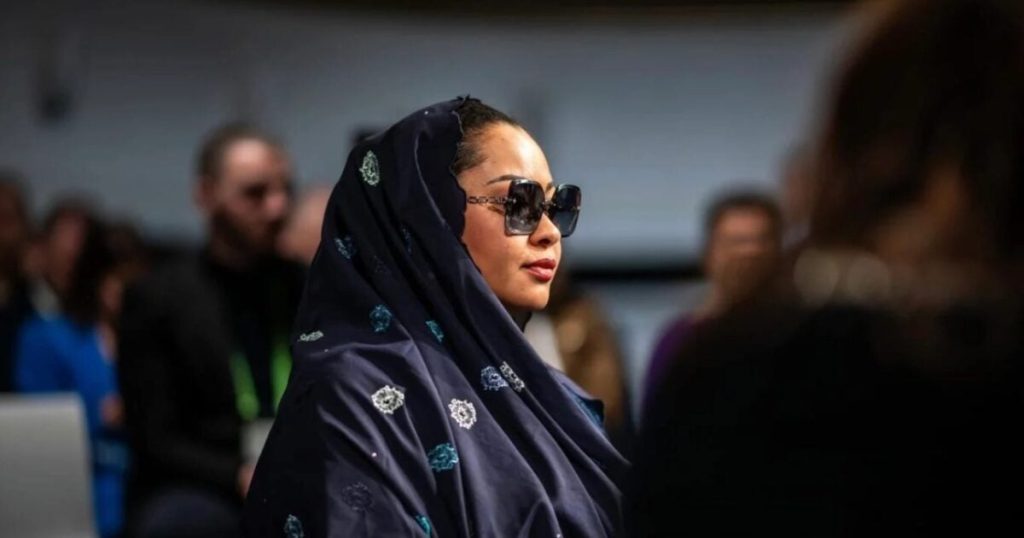Senator Natasha Akpoti-Uduaghan’s legal battle against the Federal Government of Nigeria has intensified, transforming into a complex web of accusations and counter-accusations. Akpoti-Uduaghan faces criminal defamation charges brought forth by the Attorney General of the Federation, stemming from allegations she made against Senate President Godswill Akpabio and former Kogi State Governor Yahaya Bello. The Senator, however, vehemently denies the charges, characterizing them as a politically motivated attack designed to silence her and other opposition voices. This escalating conflict draws into question the boundaries of free speech, the role of the judiciary in political disputes, and the potential misuse of legal processes for political gain. The case also highlights the precarious position of women in Nigerian politics, particularly when confronting powerful figures.
Akpoti-Uduaghan’s legal team argues that the defamation charges are a veiled attempt to criminalize what essentially constitutes public discourse and media commentary. Their core argument centers on the nature of defamation as a civil, not criminal, matter. Criminalizing such speech, they contend, sets a dangerous precedent, stifling free speech and creating an environment of intimidation for those critical of the government. Furthermore, the defense points to the alleged selective application of justice, accusing the authorities of swiftly pursuing charges against Akpoti-Uduaghan while simultaneously ignoring her petitions regarding threats to her life. This alleged disparity, they argue, violates her constitutional rights and underscores the discriminatory nature of the prosecution.
The legal team’s strategy involves a multi-pronged approach, challenging the jurisdiction of both the High Court of the Federal Capital Territory and the Federal High Court. They assert that the Attorney General of the Federation lacks the legal standing to prosecute what they deem a private defamation case. By filing preliminary objections in both courts, the defense aims to have the charges dismissed at the outset, arguing that proceeding with the case would not only waste public resources but also undermine the credibility of the judicial system. The October 20th adjournment by the Federal High Court allows both sides to prepare their arguments for what promises to be a closely watched legal battle.
Adding another layer of complexity to the situation, women’s rights organizations have internationalized the conflict by filing a complaint with the United Nations. The Womanifesto Network, representing over 350 organizations, alleges gender-based discrimination by the Nigerian Senate in its handling of Akpoti-Uduaghan’s case. They argue that the Senate’s actions violate Nigeria’s obligations under the Convention on the Elimination of All Forms of Discrimination Against Women. The complaint calls for the UN to pressure the Nigerian government and the Senate to reinstate Akpoti-Uduaghan, comply with the Federal High Court’s reinstatement order, and launch an independent investigation into her harassment claims. This internationalization of the issue raises the stakes significantly and places further pressure on the Nigerian government to address the allegations.
The backdrop of this legal battle is a broader struggle over political power and influence in Nigeria. Akpoti-Uduaghan’s initial allegations against Senate President Akpabio, which he denies, triggered a chain of events leading to her suspension from the Senate. This suspension, later deemed unconstitutional by the Federal High Court, has become a flashpoint in the ongoing power struggle. The Senate’s resistance to reinstating her, despite the court order, further exacerbates the conflict and raises questions about the separation of powers and the rule of law within the country. The Senate’s argument that the judgment is “under litigation” suggests a protracted legal battle, with potentially significant implications for the balance of power within the Nigerian government.
The case of Senator Akpoti-Uduaghan has become a crucible for testing the strength of democratic institutions in Nigeria. It highlights the challenges faced by those who speak out against powerful figures, particularly women in politics. The confluence of legal battles, political maneuvering, and international pressure creates a complex landscape that will undoubtedly continue to evolve. The outcome of this case could have far-reaching consequences for freedom of speech, the rights of women in politics, and the integrity of Nigeria’s democratic processes. The international community’s involvement, through the UN, adds another layer of scrutiny and underscores the global implications of this seemingly domestic dispute. The coming months will be crucial in determining the trajectory of this case and its impact on the Nigerian political landscape.














